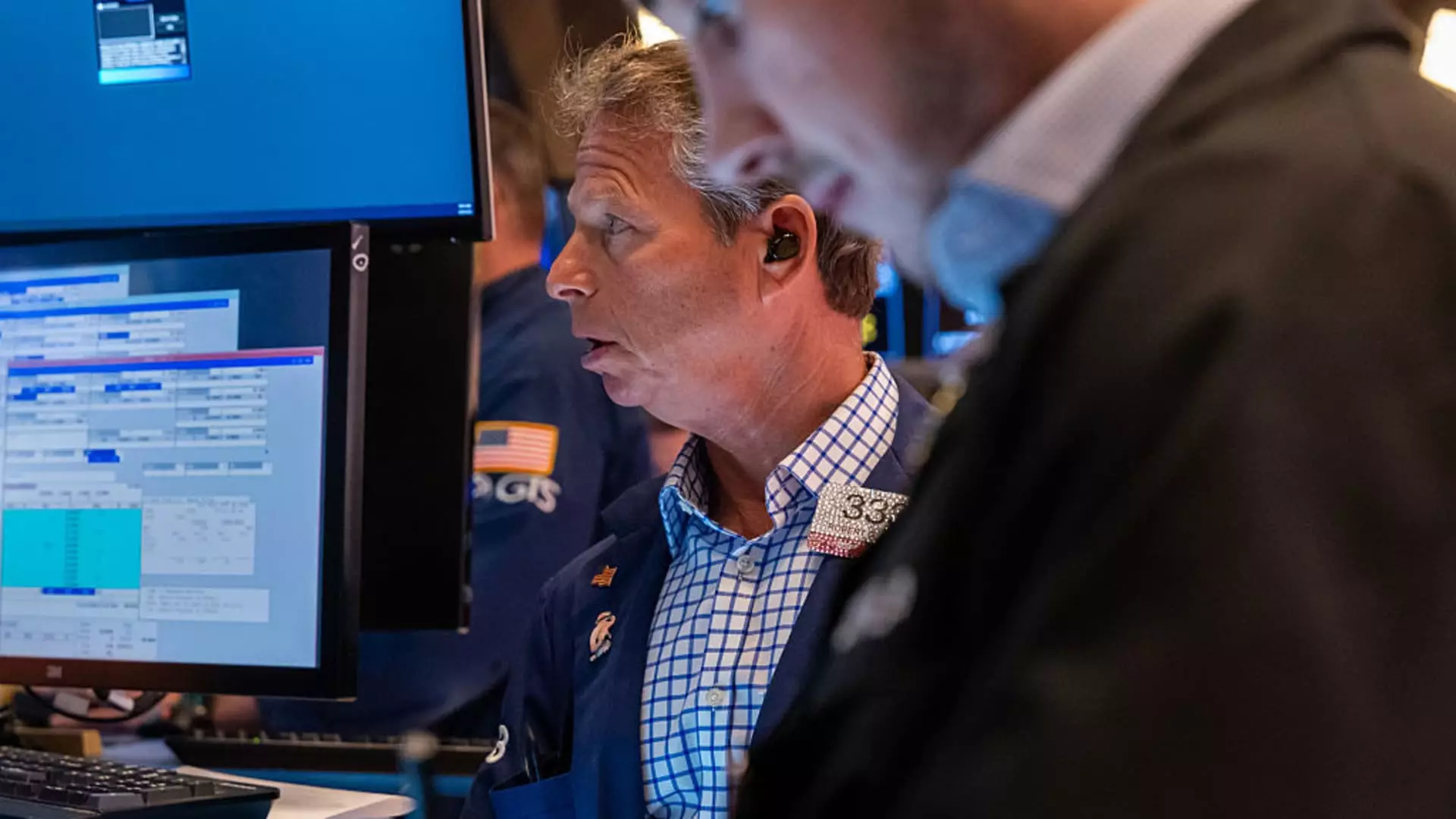In recent times, the rhetoric surrounding global trade has taken a gravely intimidating turn. The iShares MSCI Emerging Markets ETF (EEM) finds itself in a precarious situation, poised for its most significant downturn since June 2020. The driving force behind this troubling trajectory is none other than former President Donald Trump’s retaliatory tariffs. As we delve deeper into this unsettling scenario, it’s crucial to grasp the broader implications of these aggressive protectionist policies that seem to threaten not only markets but also international relationships and economic stability.
The Market’s Reaction: Fear and Instability
After the announcement of increased tariffs, the market responded with notable pessimism. The ETF was last seen trading down by approximately 5%, hinting at imminent losses that could swell to over 6% by the week’s end. This decline isn’t simply a number on a ticker; it reflects deep-seated fears about an impending global trade war that could stifle economic growth across the board. Emerging market economies, which are heavily intertwined with global supply chains, are on the brink of a crisis fueled by escalating tariffs. The unease in the financial sphere reveals a chilling forecast—one where a tit-for-tat tariff strategy disrupts the fragile equilibrium of emerging markets, many of which depend profoundly on exports for sustained growth.
Export Reliance: A Double-Edged Sword
The data is stark: for countries like South Korea, India, and China, exports represent an overwhelming portion of their GDP. South Korea’s export reliance stands at a staggering 44% of its GDP, while India and China hover around 22% and 20%, respectively. These figures illuminate the vulnerabilities embedded within their economic frameworks—the moment tariffs are enacted, the repercussions are swift and punitive. The top holdings in the EEM, predominantly sourced from Taiwan and the aforementioned countries, reveal how enmeshed these nations are in the crosshairs of U.S. trade policies. Tariff rates as high as 54% for China and significant levies for South Korea and India could catalyze a downward spiral for these economies, putting jobs, trade policies, and future investments in jeopardy.
The Real Cost of Protectionism
Economist Torsten Slok of Apollo Global Management provides a sobering perspective, suggesting that the burden of a prolonged trade conflict would hit emerging markets harder than the U.S. This assertion resonates strongly; it underscores a glaring truth: the U.S. economy operates with a comparatively lower dependency on exports and imports than many others. Instead, emerging markets are more susceptible to the ebbs and flows of international trade. The irony is that while tariffs may be positioned as a strategy to protect domestic interests, they inadvertently place international harmonies at risk, jeopardizing both local economies and global collaboration.
Retaliation: A Dangerous Game
In response to the escalating situation, China announced sweeping retaliatory measures, hinting at a retaliatory tariff of 34% on all imports from the U.S. Such measures are emblematic of a concerning cycle of confrontation that will inevitably exacerbate existing tensions. The trilateral discussions initiated by China with both Japan and South Korea serve as a reminder that alliances shift, and a unified front against U.S. tariffs may emerge, intensifying the complexities of global trade dynamics. The ramifications of these discussions could lead to a robust coalition tightening its grip on tariffs in response to U.S. actions, raising the stakes higher for everyone involved.
The Illusion of Control
Investors should contemplate an uncomfortable reality: while investors in U.S. markets may feel insulated, the broader ramifications of these trade policies could reverberate widely, damaging prospects for growth and stability across multiple geographies. As trade wars escalate, the illusion of control fades, highlighting a volatile landscape where economic policy becomes a high-stakes gamble. Emerging markets bear a weight that could reverberate back to U.S. shores, complicating the longstanding belief that American interests always prevail in international confrontations. The dance of global economics is intricate and undeniably interconnected; it’s time we recognize the far-reaching consequences of our approach to international trade.
This unfolding narrative is far from over, as the global community watches closely—a precarious condition that begs for a thoughtful reevaluation of the strategy to navigate trade relations. The stakes have never been higher, and the need for strategic diplomacy is palpable, lest we tumble into an economic abyss we may struggle to escape.

